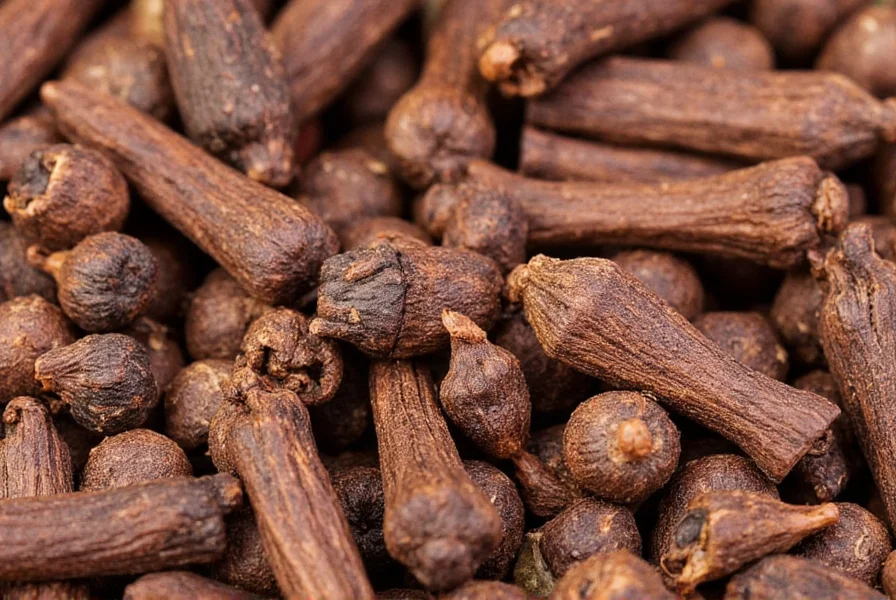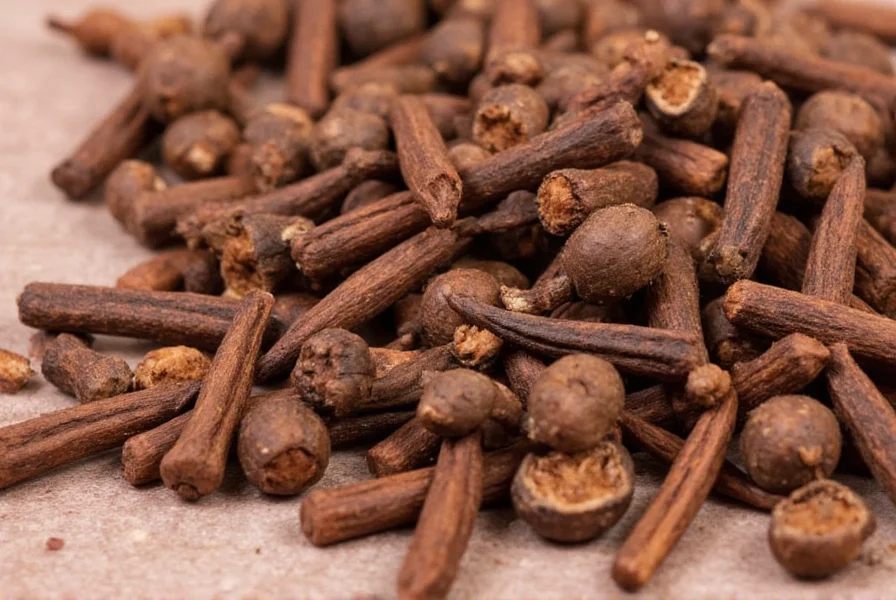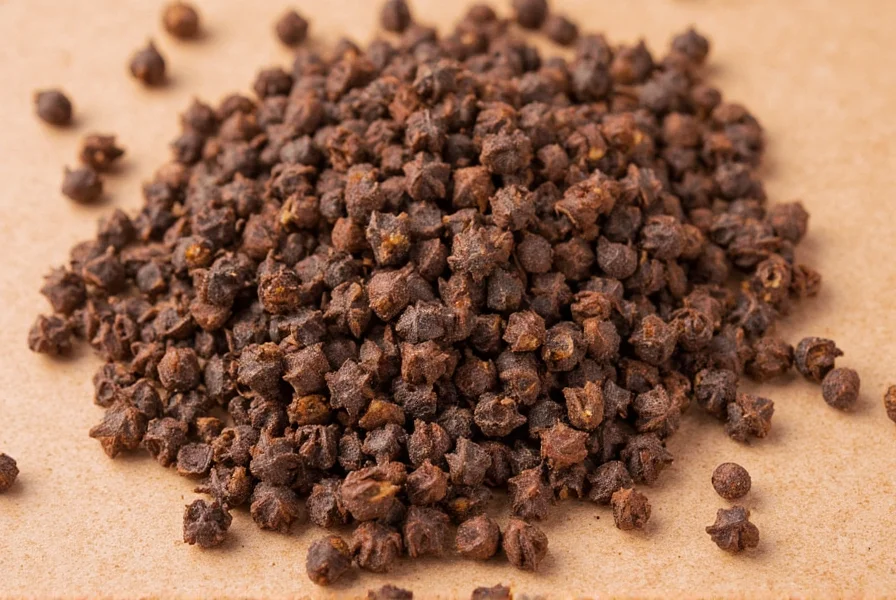Cloves represent one of the world's oldest and most valuable spices, with historical records showing their use dating back to 1721 BCE in China. These small but mighty buds deliver intense flavor and potential therapeutic properties that have made them indispensable in global cuisines and traditional medicine systems.
Botanical Profile and Origins
The clove tree (Syzygium aromaticum) grows up to 40 feet tall in tropical climates. Native to Indonesia's Maluku Islands (formerly the Spice Islands), cloves now grow in Madagascar, Zanzibar, and Sri Lanka. Harvesters pick the unopened flower buds when they turn from green to pink, then sun-dry them until they become the familiar reddish-brown color.

Culinary Applications Worldwide
Chefs utilize cloves across diverse culinary traditions:
| Cuisine | Common Uses | Flavor Contribution |
|---|---|---|
| Indian | Garam masala, biryani, chai | Warm base note in spice blends |
| Middle Eastern | Rice dishes, stews, marinades | Complex depth without overpowering |
| European | Ham glazes, mulled wine, pickling | Festive warmth and preservation |
| Chinese | Five-spice powder, braised dishes | Balancing bitter component |
Professional chefs recommend using whole cloves rather than ground whenever possible for superior flavor retention. When using whole cloves in cooking, remember they become extremely hot when heated—always remove them before serving dishes.
Nutritional Composition and Research-Backed Benefits
Per teaspoon (2g) of ground cloves contains:
- Calories: 6
- Fiber: 1g (4% DV)
- Manganese: 55% DV
- Vitamin K: 3% DV
- Eugenol: 70-90% of essential oil
Current research indicates cloves may offer several health advantages. Studies published in the Journal of Agricultural and Food Chemistry show cloves contain the highest antioxidant capacity among 26 common spices. The eugenol content demonstrates potential anti-inflammatory effects, while test-tube studies suggest antimicrobial properties against certain bacteria and fungi.
Many people ask about cloves for toothache relief. Dental research confirms eugenol's temporary analgesic properties, which is why it appears in some temporary filling materials. However, cloves cannot replace professional dental care for persistent pain.
Selection, Storage, and Substitution Guide
When selecting cloves, look for:
- Deep reddish-brown color (avoid pale or yellowish buds)
- Intact stems (indicates freshness)
- Strong aroma when crushed
- Heavy weight for their size (more oil content)
Proper storage extends shelf life significantly. Keep whole cloves in airtight glass containers away from light and heat. Under these conditions, they maintain peak quality for 12-24 months. Ground cloves lose potency much faster—use within 6 months for best results. Freezing cloves in vacuum-sealed containers can extend freshness up to 3 years.

If you run out of cloves, these substitutions work in a pinch:
- Allspice (use 3/4 amount)
- Nutmeg (use half amount)
- Pumpkin pie spice (use equal amount)
- Apple pie spice (use equal amount)
Remember that no substitute perfectly replicates cloves' unique flavor profile, so adjust recipes accordingly when making substitutions.
Safety Considerations and Usage Tips
While generally safe as a culinary spice, concentrated clove oil requires caution. The FDA considers clove oil GRAS (Generally Recognized As Safe) only in small culinary amounts. Undiluted clove oil can cause tissue irritation, especially in children. People with bleeding disorders should consult doctors before consuming large amounts, as eugenol may slow blood clotting.
Chef's tip: To maximize flavor extraction, lightly toast whole cloves before grinding. For even distribution in dishes, stud onions or citrus with whole cloves rather than adding them loose to liquids.
Frequently Asked Questions
What are the primary health benefits of cloves?
Cloves contain high antioxidant levels, particularly eugenol, which shows potential anti-inflammatory effects in research studies. They provide significant manganese for bone health and may support oral health due to antimicrobial properties. However, most health benefits require further human studies for confirmation.
How should I store cloves to maintain freshness?
Store whole cloves in an airtight glass container away from light and heat. Properly stored, they maintain peak quality for 1-2 years. Ground cloves lose potency faster—use within 6 months. For extended storage, freeze cloves in vacuum-sealed containers up to 3 years.
Can cloves help with tooth pain?
Eugenol in cloves has temporary analgesic properties that may provide short-term toothache relief. Apply a small amount of clove oil diluted with carrier oil to the affected area. However, this only addresses symptoms—not the underlying cause—so see a dentist for persistent pain.
What's the difference between whole cloves and ground cloves?
Whole cloves retain their essential oils and flavor compounds longer than ground cloves. Ground cloves lose potency within 6 months, while whole cloves stay fresh for 1-2 years. Whole cloves also distribute flavor more evenly in liquids and are easier to remove before serving.
Are there any safety concerns with consuming cloves?
Cloves are safe as a culinary spice, but concentrated clove oil requires caution. Undiluted oil can cause tissue irritation. People with bleeding disorders should consult doctors before consuming large amounts, as eugenol may slow blood clotting. Children should avoid direct application of clove oil.











 浙公网安备
33010002000092号
浙公网安备
33010002000092号 浙B2-20120091-4
浙B2-20120091-4